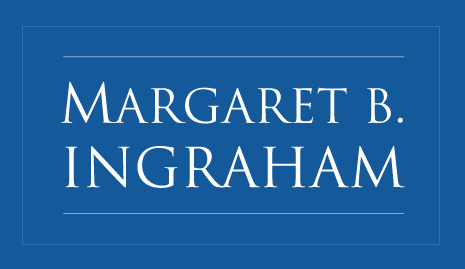The final section of Psalm 103 is the shortest of the four, containing only three verses. But the all of verses 20 through 22 is the most expansive including in one small word the whole creation, animate and inanimate, earthly and celestial. And the entirety of this all is called upon by the psalmist to “Bless the Lord” in what I imagine as a glorious cosmic symphony. In addition, the last line of the poem– Bless, O my being, the Lord! –repeats the opening line using a literary device known as envelope structure, which is characteristic of many of the psalms and other ancient Hebrew poetry. In a handful of words, it neatly envelops the entire psalm by repeating the primary theme around which it is constructed. In this case, the poet also uses it to bring the universal tribute back to his own intensely personal outpouring of reverence, homage and joy.
In Part One of this series on the 103rd psalm we examined the specific language of the opening verse, noting particularly that the word frequently translated soul is more accurately rendered whole being and that the verb bless is differentiated from praise by the sense of deep reverence that it transports. Remaining mindful of these nuances of meaning enhances our understanding of David’s rhapsodic call to an infinite tribute of laud.
Because the brevity of this fourth section of the psalm, and my surmise that Robert Alter’s translation may be unfamiliar to many, I am including it in full below:
“Bless the Lord, O His messengers,
valiant in power, performing His word,
to heed the sound of His word.
Bless the Lord, all His armies,
His servants performing His pleasures.
Bless the Lord, O all His works,
in all places of His dominion.
Bless, O my being, the Lord!”
The first beings entreated by the psalmist to bless the Lord are “His messengers,” a term traditionally translated as angels. Alter’s word choice lends some clarity to the distinct role of those celestial beings. They are primarily workers who, we can assume by the inference created in the repetition of the noun word (and not commandments, the term many popular translations adopt), are engaged in ongoing direct and personal communication with the Lord.
These are vigilant beings who wait, listen and then act in response to His utterances. Beyond that, we are told that they are strong and powerful in the execution of their specific duties of “performing” His words. One point here, which may be easy to gloss over, is that they not only excel in strength because God has endowed them with power but also because they are constantly engaged in heeding the Lord’s word. Their energy is not garnered in rest but renewed through obedient action. The truth subtly embedded here is one that I, at least, need to heed.
 Strength comes from hearty involvement in the execution of God’s word, not just simply from knowing what it is and passively listening or giving lip service to it. The full connotative meaning of the original language of the Hebrew Bible is instructive here as well. Shema means not only to hear but to obey. That is the example the heavenly messengers offer.
Strength comes from hearty involvement in the execution of God’s word, not just simply from knowing what it is and passively listening or giving lip service to it. The full connotative meaning of the original language of the Hebrew Bible is instructive here as well. Shema means not only to hear but to obey. That is the example the heavenly messengers offer.
Verse 21 continues to define these celestial actors in terms of their duties. This time the image seems to be one of divine warriors much like those that Milton depicted in Paradise Lost. The particular noun that David chooses here to describe the servants that perform His pleasures means hosts or army.
When the adjective, which is the cognate of that noun host, is paired with or modifies the word Lord, it becomes the a divine name frequently expressed as “Lord of Hosts.” The transliteration of the Hebrew title, Lord Tzveot, creates the name “Lord Sabaoth” in English (and apparently in German as well). It is the very title that Luther employs in his well known hymn “A Mighty Fortress”: “Lord Sabaoth His name/ from age to age the same.” That title, like I AM, once more describes who God is; and recognizing who He is again complements, amplifies and explains what He has done, is doing and will do for us.
Psalm 103 is categorized, as are many others, as worship psalm. In this poem, as he summons us to praise and worship, David artfully instructs us as to the reason we should. We worship Him because He is worthy of our praise. That worthiness resides in Who He Is (and will forever be) and What He Has Done (and forever will do).
This morning as I opened my quiet time with a lectionary reading I was somewhat surprised to find the 103rd psalm was appointed as the evening one for today, this Third Sunday of Advent. A morning psalm greets us with hope and helps us center our hearts and spirits before we enter the world and confront its joys or cares. An evening psalm is altogether different. If the day has brought unexpected happiness, it can help give voice to our thanksgiving and exaltation. If it has been filled with trials, heartaches and disappointments, it is a refuge — or rather points the way to Him who alone is our help and hiding place. David, the man after God’s heart, knew this as profoundly and personally as anyone. And he knew it right in either case to bring all of our being into worship before Him who is our all in all. The psalmist’s words lead us by example.
As I read the entire text of this psalm again this evening, my innermost being understood its selection as an Advent reading. I pondered anew that it really is His coming into the world to live with us and die for us in order to redeem us so we might eternally dwell with Him for which, above all, we praise Him. And such blessing does demand all that we are — all of our inner being bowed in ceaseless praise before Him –Emmanuel, God with us.
Let all creation joyfully enter in!

